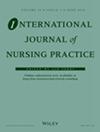Results of Interventions to Increase Breastfeeding Self-Efficacy: Systematic Review and Meta-Analysis
Abstract
Aim
The objective of this study was to determine the effectiveness of various interventions—including educational programmes, counselling, mobile applications, peer support and home visits—on improving breastfeeding self-efficacy, breastfeeding success and infant-feeding attitudes in pregnant and postpartum women.
Method
The literature review for this systematic review was conducted between September and October 2024 by searching four electronic databases. Studies related to ‘in vivo’ were identified using MeSH-based keywords. Only Randomized Controlled Trials (RCTs) published within the last decade were eligible for inclusion in the review.
Result
The analysis was conducted with 3677 women and a total of 26 studies. Subgroup analysis showed no significant difference in breastfeeding self-efficacy before the intervention (MD: −0.53, 95% CI: −1.43 to 0.38, p = 0.25), while a significant increase was observed after the intervention (MD: 53.53, 95% CI: 29.34 to 77.72, p < 0.0001). Breastfeeding success also improved significantly postintervention (MD: 1.22, 95% CI: 0.52 to 1.92, p = 0.0007). No significant change was found in infant-feeding attitudes (SMD: 0.01, 95% CI: −0.18 to 0.16, p = 0.47). Postnatal interventions were significantly more effective than antenatal ones in increasing breastfeeding self-efficacy (MD: 53.53, 95% CI: 29.34 to 77.72, p < 0.0001).
Conclusion
Subgroup analyses demonstrated that interventions significantly increased breastfeeding self-efficacy and success, particularly when delivered in the postnatal period. Antenatal interventions were not found to be effective. These findings highlight the importance of the timing of maternal support, suggesting that postnatal interventions are more beneficial in improving breastfeeding-related outcomes.


 求助内容:
求助内容: 应助结果提醒方式:
应助结果提醒方式:


